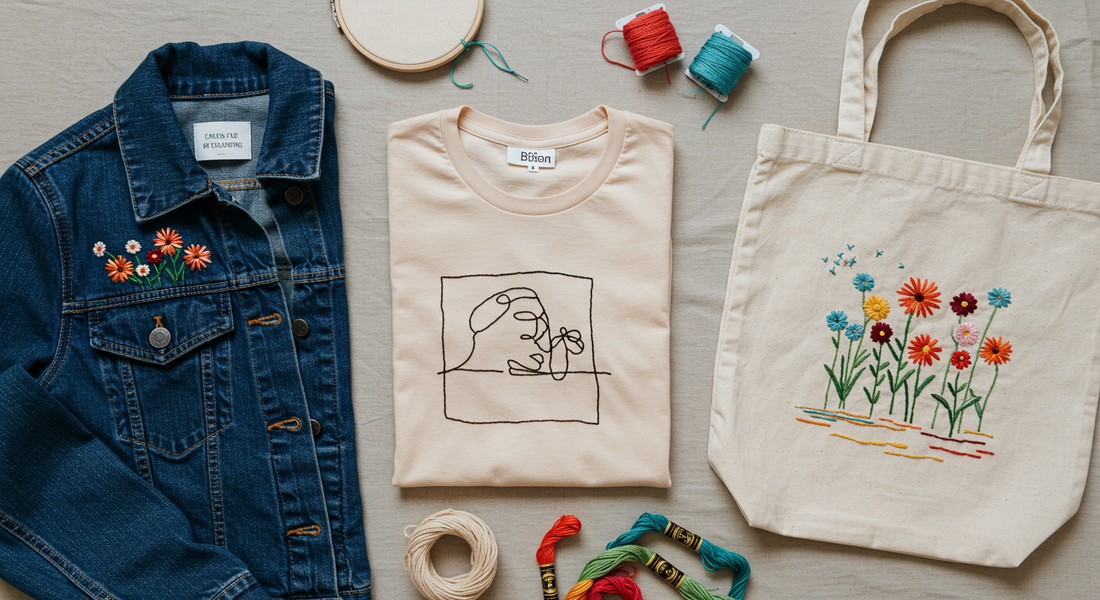
Embroidery for Wearables
Share
How to Add Beautiful, Durable Embroidery to Clothing and Accessories
Adding hand embroidery to garments transforms everyday fashion into meaningful, expressive design. From small embellishments to statement pieces, wearable embroidery has become a popular way to customize clothing, upcycle old items, or create one-of-a-kind accessories. However, it also comes with practical considerations—like stability, fabric stretch, and washability.
This guide offers step-by-step advice and best practices for embroidering on wearable fabrics.

1. Choosing the Right Garments
Ideal items for beginners:
- Denim jackets
- Cotton T-shirts
- Canvas totes
- Sweatshirts & hoodies
- Linen blouses
Avoid:
- Ultra-stretchy fabrics (unless using stabilizer)
- Sheer or very delicate materials (they require more expertise)

2. Design Placement & Planning
Common placement areas:
- Shirt pockets
- Collar tips
- Jean back pockets
- Sleeve cuffs or hems
- Elbows (for mending or art)
Use tailor’s chalk or water-soluble pens to sketch out placement. Remember: what looks centered when flat may shift when worn—test your layout on-body if possible.

3. Stabilizing the Fabric
Fabrics used in wearables tend to shift or stretch. Use stabilizers to prevent puckering or distortion:
Recommended stabilizers:
- Tear-away for stable fabrics (e.g., denim, twill)
- Cut-away for knits and stretchy materials
- Fusible interfacing for added durability
Hoop both the fabric and the stabilizer together for best results.

4. Choosing Threads & Needles
- Use colorfast, washable threads like DMC cotton or polyester.
- For heavy fabrics (like denim), use stronger threads and embroidery or tapestry needles.
- For stretch fabrics, use a ballpoint or stretch needle.
Avoid metallic threads unless you’re experienced—they can catch or fray with wear.
5. Finishing & Washing Wearable Embroidery
To protect your embroidery:
- Press the reverse side with a cloth to flatten stitches
- Cover the back with iron-on interfacing or soft fabric patches to reduce skin irritation
- Hand wash or use gentle machine cycles
- Avoid tumble drying when possible
Always test washability if selling or gifting your items.

6. Inspiring Ideas
- Monogrammed shirt cuffs
- Sun and moon motifs on jacket backs
- Floral collars and sleeve borders
- Minimalist stitching on leather bags
- Decorative elbow patches with stitched patterns
Take inspiration from nature, quotes, abstract shapes—or your wardrobe itself!
Final Thoughts
Embroidery for wearables is the perfect blend of fashion and craft. Whether you’re embellishing a thrifted denim jacket or hand-stitching a heartfelt gift, wearable stitching lets your creativity travel with you—on every sleeve, pocket, and hem.